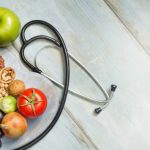Pemasaran digital telah menjadi kunci utama dalam mencapai kesuksesan bisnis di era digital saat ini. Di Bandar Lampung, pemasaran digital telah menjadi strategi yang efektif dalam meningkatkan visibilitas dan daya saing bisnis lokal.
News Feed
detikcom.id
Review Pemasaran Digital Efektif Di Makassar 2023
Pemasaran digital telah menjadi salah satu strategi pemasaran yang paling efektif di era digital saat ini. Di Makassar, pemasaran digital semakin berkembang pesat seiring dengan meningkatnya penetrasi internet dan penggunaan media sosial.
- 1
- 2
- 3
- …
- 44
- Berikutnya
Tidak Ada Lagi Postingan yang Tersedia.
Tidak ada lagi halaman untuk dimuat.















